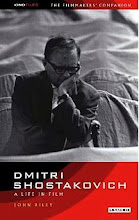Стенькa Разин(ъ)* 
I thought that for my first entry I'd almost follow Mary Poppins' excellent advice and start at the very beginning (it's a very good place to start), but will ignore the King's overly prescriptive "and go on till the end, then stop." Which is a roundabout way of introducing a few thoughts about the first completed Russian fiction film, Stenka Razin (1908).
In 1907, eleven years after the Lumières' cinématographe shows in Moscow and Nizhny Novgorod, a Russian got round to producing a fiction film. Even then, Alexander Drankov's film of the Eden Theatre performing scenes from Pushkin's Boris Godunov wasn't actually completed. How it was decided that it wasn't completed isn't clear as it was never going to be the complete play, so perhaps it's more accurate to say that it wasn't released. But Drankov, never a man to sanction waste, used the footage in Scenes from Boyar Life.
Undeterred, he started again, this time taking the 16th-century Cossack rebel Stenka Razin as his theme, and basing it on the folk song From Beyond the Wooded Island, as historically a questionable source as Pushkin's Boris (you may know it in this form).
Russia, like every other country, started early with cinematic rewritings of history.
Russia, like every other country, started early with cinematic rewritings of history.
To be honest, Drankov wasn't the greatest of directors: he was more like the Del Boy Trotter of early Russian cinema (doubtless future posts will help make a convincing case). On Stenka he served as producer and cameraman, with the since-forgotten Vladimir Romashkov helming.
What we have is a six-minute film comprising twelve shots and a few intertitles. It starts with a bang as, on board a boat, we run alongside Stenka's marauding horde for a few shots. Then the narrative unfolds in a series of land-locked shots of around twenty seconds each, some of which comprise an entire scene. Back on the water, it ends with an abruptness that would have impressed Hitchcock, though it seems more like incompetence - you can almost hear Drankov shouting "Hurry up - we're running out of film!" and the moment after the climax we see the old Konets.
A less than full-frame version is available on DVD from the French company Bach Films. They've replaced many of the attractive Russian intertitles or overlaid them with French translations which are, at their best, accurate, in the most mundane and inappropriate typeface they could find, making no attempt to replicate the layout of the originals.
The most egregious example is the text of the letter, though Bach's approximation would give you no idea of that. Perhaps it's superfluous to point out that they don't run the same length as the originals, making the film slightly shorter than it should be, to the annoyance of the few people in the world who care about such things. Accessibility (at least to Francophones) is welcome but the advantage to Bach is that it also creates a newly copyrighted artefact, circumventing the nightmare that is Russian copyright law.
The most egregious example is the text of the letter, though Bach's approximation would give you no idea of that. Perhaps it's superfluous to point out that they don't run the same length as the originals, making the film slightly shorter than it should be, to the annoyance of the few people in the world who care about such things. Accessibility (at least to Francophones) is welcome but the advantage to Bach is that it also creates a newly copyrighted artefact, circumventing the nightmare that is Russian copyright law.
Stenka used to be available on a BFI VHS and still is from Milestone in the USA. It's a better transfer than Bach's but for reasons understood only by those who understand, the BFI VHS has a burnt-in time code throughout. Not a huge one, but annoying nonetheless. I don't know if it's on the Milestone release as well, but I wouldn't be surprised as, PAL/NTSC apart, in every other regard they look identical.
Sadly, nobody makes any nod towards Drankov's coup of getting Mikhail Ippolitov-Ivanov to adapt the very famous and popular folk song, which apparently led to instances of sing-along-a-Stenka. True to type, Drankov later fell out with both Ippolitov-Ivanov and writer Vasily Goncharov. To the best of my knowledge, it's never been recorded, but surely the double whammy of the first Russian fiction film and the first Russian film score deserves some sort of acknowledgment?
* For those mystified by the bracketed final letter, Russian orthography changed in 1918 and the terminal hard sign (the 'yer') was dropped. I include it for pedantry's sake - it reflects what we see on the poster but not what we would see today.


1 comment:
Stenka used to be available on a BFI VHS and still is from Milestone in the USA. It's a better transfer than Bach's but for reasons understood only by those who understand, the BFI VHS has a burnt-in time code throughout. Not a huge one, but annoying nonetheless. I don't know if it's on the Milestone release as well, but I wouldn't be surprised as, PAL/NTSC apart, in every other regard they look identical.
They are indeed identical, and from exactly the same (BFI) source, so there's no getting round the timecode. I originally thought I'd accidentally been given a pre-release version, but sadly not! Still, as you say, it's about as unobtrusive as timecode gets.
But I understand that Milestone is transferring the films to DVD-R later this year as part of a video-on-demand initiative - they can't justify the expense of a full release, but the DVD-Rs will be sourced from their Digibeta masters, so they should certainly look considerably better than the VHSes (albeit still with timecode).
Post a Comment